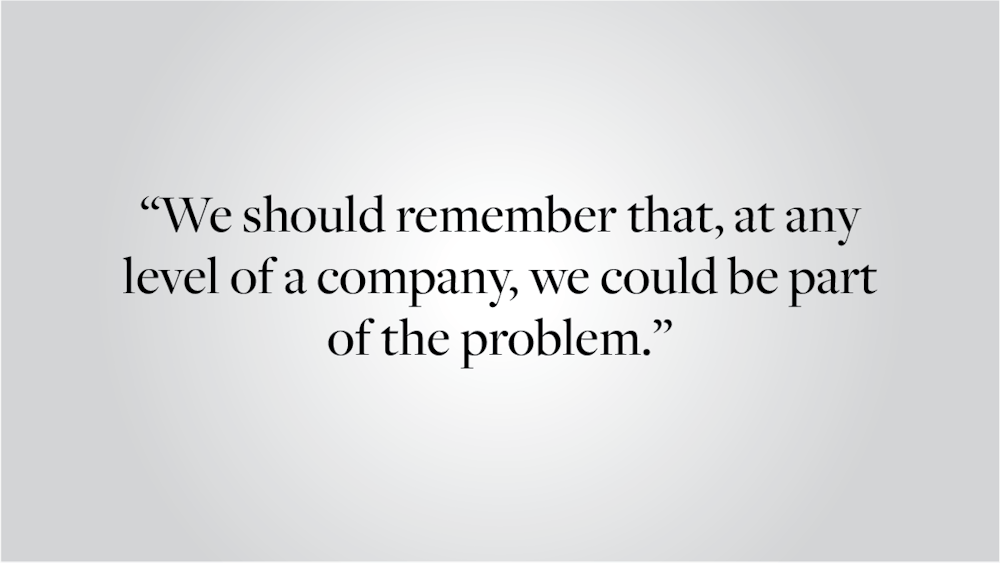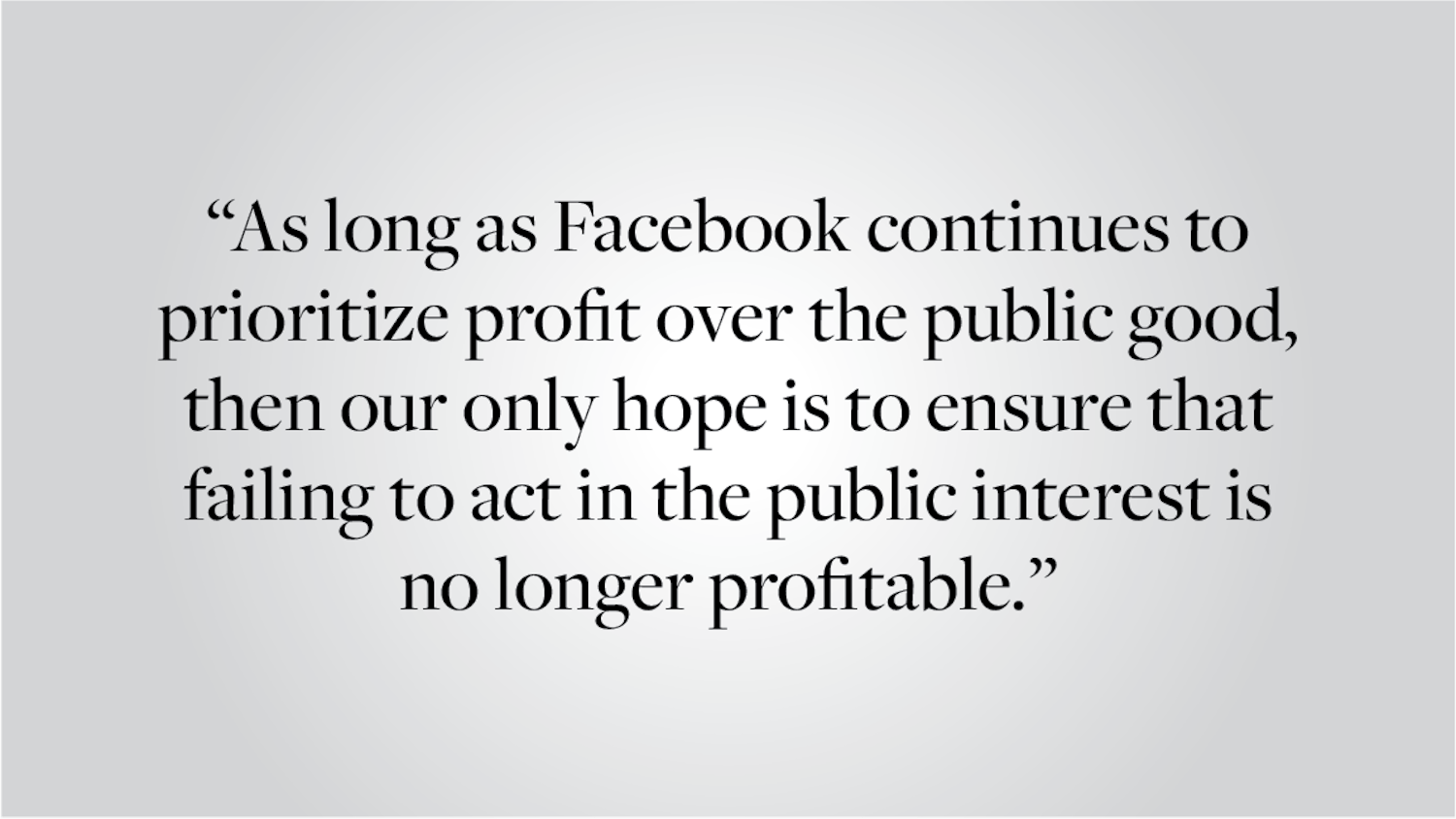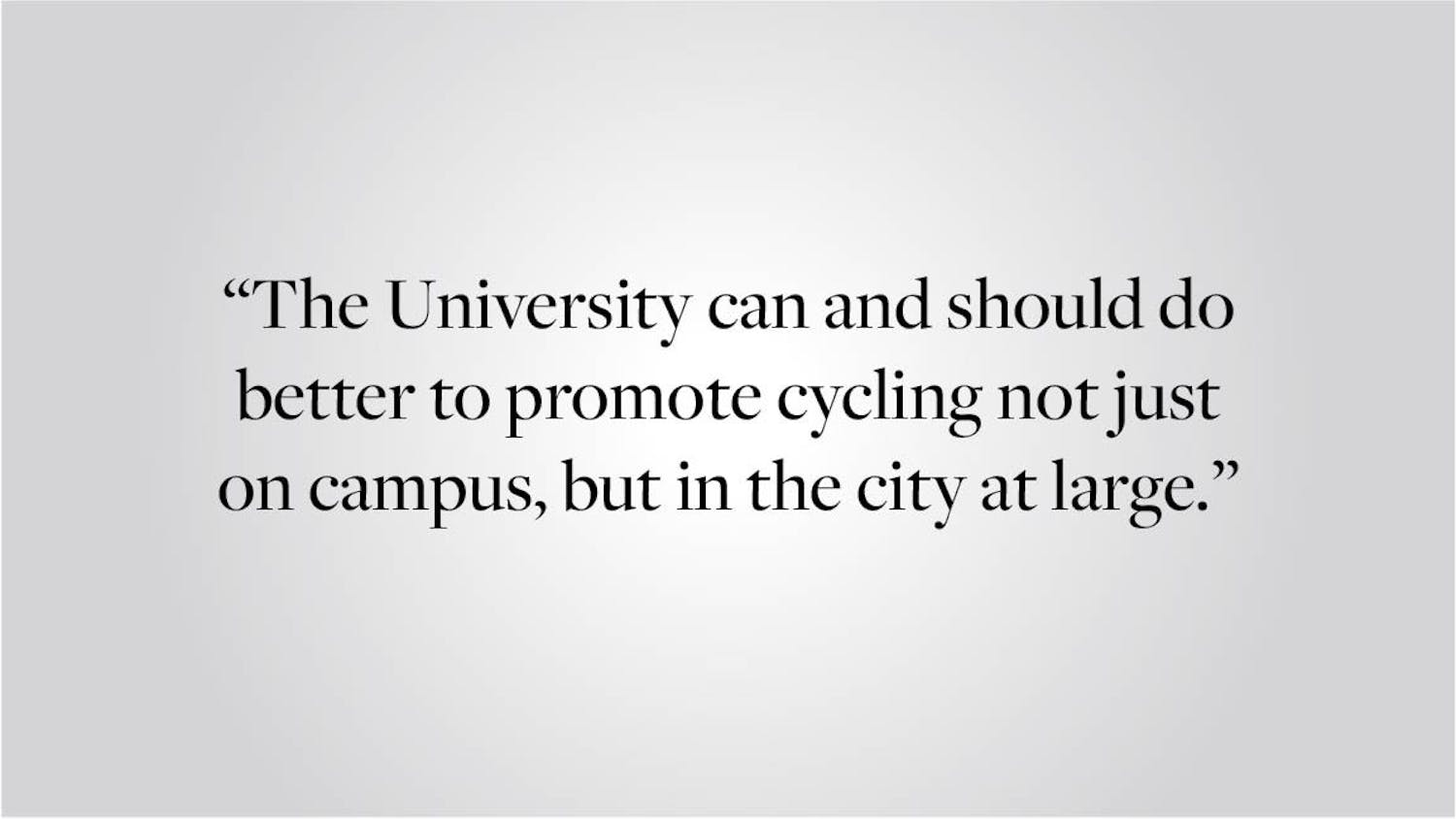At first glance, it seems that everyone at Brown is an overachiever. Not much changes after a second glance. No matter their motivation, it seems like everyone here is driven to succeed. That drive (plus a few connections) leads many of us to impressive heights in our internships and work experiences during and after college. Many of us are approached on Handshake and LinkedIn by big-name companies and apply to upward of 20 internships per year. But many of us fail to consider whether the internship or job offer we accept comes from a company that will provide a safe environment or have a positive social impact. However, a few recent controversies and tragedies — from tech to fast fashion to film — provide evidence that a company’s ethical practices should be critical factors in our job searches.
A common destination for Brown graduates in computer science and engineering is Facebook. While it offers handsome pay and benefits, we must ask: What are the moral consequences of working for a company whose business model lends itself to potentially unethical practices? An obvious example is the testimony that Frances Haugen gave to Congress in early October regarding Facebook’s ethical breaches in favor of profit and growth. Haugen described an “incentive” system in which employees were encouraged to ignore hate speech and misinformation, as doing so could reduce user engagement and, in turn, employee bonuses. Another notable scandal was when Facebook sold data to the political consulting firm Cambridge Analytica, which was then accused of using this data to create personalized and divisive advertising campaigns for candidates. Many of us aren’t in positions to turn down jobs, especially in the post-pandemic economy. And people who take jobs with “unethical” companies often remind us that it’s just a job and that they’re not involved with big picture decision-making. But as Haugen’s testimony shows, a so-called foot soldier for a company like Facebook can in fact be partly responsible for carrying out the company’s unethical practices.
The tech industry isn’t the only sector with ethical minefields. For those aspiring to enter the fashion industry, fast fashion giants like H&M, Zara and Forever 21 are attractive options. But they have recently fielded controversy for paying overseas workers measly wages and contributing to environmental degradation with clothing waste. Yet they remain valuable and viable corporations and continue to attract budding fashion entrepreneurs. It’s hard to believe that progressive-minded students would be able to look past such well-documented ethical concerns in order to accept a job or internship opportunity. Yet when it comes to decisions that seem like they’ll define our entire careers, it’s understandable to equivocate about ethical matters — or even jump into a company with a history of questionable conduct. But while I find it difficult to judge individuals’ early career choices, contributing to social harm may not be worth an attractive salary.
Students seeking a career in entertainment must be wary of the corporate misconduct that occurs in the film industry, too. Even in such a seemingly-glamourous industry, it is necessary for students to closely scrutinize the companies from which they might accept job offers. The tragedy on the set of Rust, for example — in which Alec Baldwin discharged a prop gun and killed cinematographer Halyna Hutchins — has brought some questionable production practices to light. It’s been reported that multiple crew members had raised concerns about lack of adherence to safety standards on set prior to the fatal shooting. Furthermore, one of these concerns was a specific complaint about accidental gun discharges on set, which, unfortunately, fell on deaf ears. An earlier red flag was the choice not to purchase an insurance completion bond (which covers horrific events that may make film completion impossible) as part of the production’s insurance package. This decision suggests that the producers were willing to cut cost corners and put their own employees at risk. And this incident is certainly not the lone instance of misconduct in the industry — to make genuinely ethical career decisions, students need to interrogate and research their potential workplaces.
There seems to be an unspoken division on our campus between “woke” students whose ethical standards are ironclad, and those students who, for any (possibly legitimate) reason, make career choices based on the potential for monetary gain and name recognition. There are many factors at play in our career searches, and money is not an illegitimate one. But those of us who are concerned about the freedom of our governments, the welfare of our fellow human beings and the survival of our planet should take into account the impact that a company has on our world. Beyond that, we should remember that, at any level of a company, we could be part of the problem. We must think critically about whether our job responsibilities will contribute to a company’s harmful practices — and if they do, we might want to look elsewhere.
Yasmeen Gaber ’23 can be reached at yasmeen_gaber@brown.edu. Please send responses to this opinion to letters@browndailyherald.com and other op-eds to opinions@browndailyherald.com.





